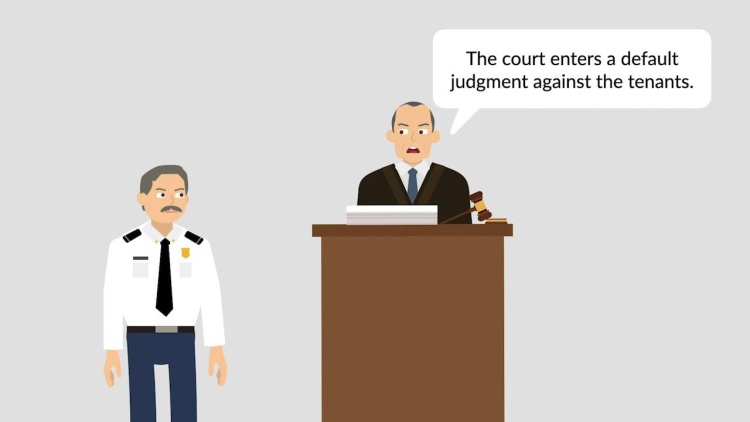Greene v. Lindsey
United States Supreme Court
456 U.S. 444 (1982)
- Written by Alexis Tsotakos, JD
Facts
Acting under a Kentucky statute which provided that notice of an eviction hearing could be posted on the premises of a defendant tenant if he cannot be found, Jefferson County Sherriff Joseph Greene (plaintiff) attached a writ of forcible entry and detainder (essentially an eviction hearing notice), on the doors of three tenants of a Kentucky housing project. The tenants, including Linnie Lindsey (defendant), did not appear for the eviction proceeding, and the court entered a default judgment against them. They brought a class action suit in district court against Greene and Jefferson County, alleging that they never received notice of the eviction hearings, and that the method used to notify them of the hearing was insufficient, in violation of due process. The district court, relying on an older, unreported opinion, granted Greene’s motion for summary judgment. The Court of Appeals for the Sixth Circuit reversed, and the United States Supreme Court granted certiorari.
Rule of Law
Issue
Holding and Reasoning (Brennan, J.)
Dissent (O’Connor, J.)
What to do next…
Here's why 907,000 law students have relied on our case briefs:
- Written by law professors and practitioners, not other law students. 47,100 briefs, keyed to 996 casebooks. Top-notch customer support.
- The right amount of information, includes the facts, issues, rule of law, holding and reasoning, and any concurrences and dissents.
- Access in your classes, works on your mobile and tablet. Massive library of related video lessons and high quality multiple-choice questions.
- Easy to use, uniform format for every case brief. Written in plain English, not in legalese. Our briefs summarize and simplify; they don’t just repeat the court’s language.





